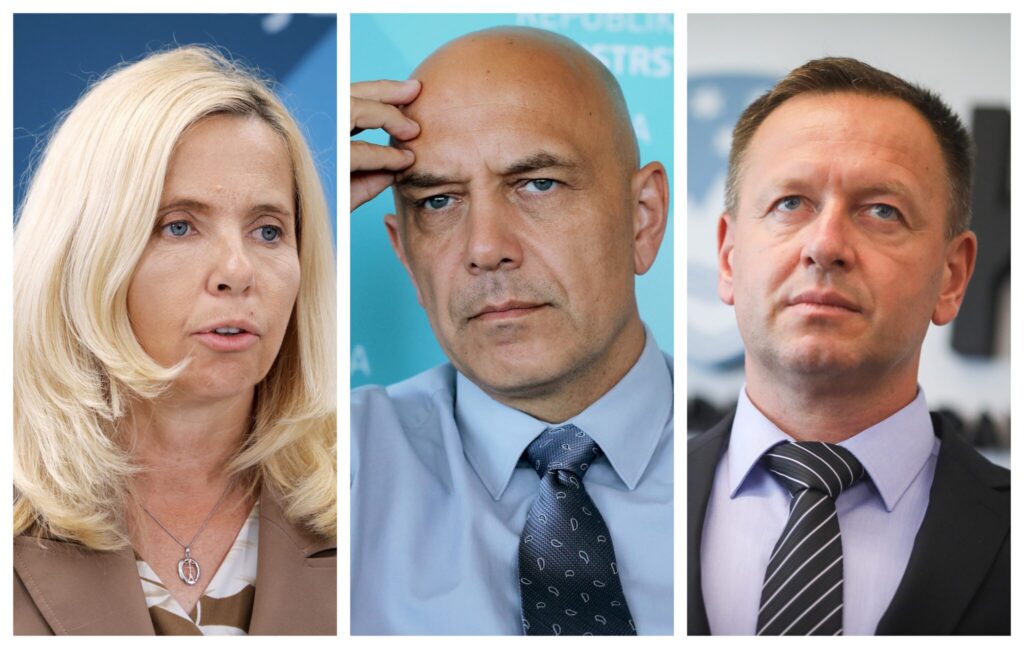Former Minister of the Interior Aleš Hojs, former Minister of Infrastructure Jernej Vrtovec, and the Director of the Motorway Police Administration Andrej Jurič are expected to face criminal charges soon. The new political establishment, headed by the current Minister of the Interior Tatjana Bobnar, Acting Director-General of the Police Boštjan Lindav, and the Commission for the Prevention of Corruption, has apparently decided to take revenge on its predecessors – and with the most comical accusations possible. This time, they have chosen the highway police for the media “bombshell,” which they abolished when they came to power, because apparently, there was already too much highway safety in Slovenia. Aleš Hojs has already commented for the media that this is a case of political pressuring, while Jernej Vrtovec has said that the ruling establishment is compensating for its incompetence and lack of vision by filing criminal charges.
The project of the highway police is allegedly a case of the former authorities misusing their powers and also a case of misuse of public money. In particular, the funding of the motorway police was arranged in such a way that the Motorway Company of the Republic of Slovenia (DARS) would help the motorway police by purchasing equipment for it and then donating it. Information on who allegedly overstepped their authority and which funds, and especially the amount of the funds that were misused, have not yet been released to the public via the media lackeys. However, reports from the same media outlets show the path taken by this media bombshell.
The Commission for the Prevention of Corruption as a tool for reckoning with the opposition
The media scriptwriters first arranged for an internal audit, the results of which were sent to the Commission for the Prevention of Corruption, which gave its “opinion” on the matter. The latter concluded that there was no conflict of interest, but they found something that the zealous “investigators” in the police could not find on their own on the basis of identical documentation, and that could be prosecuted ex officio. They, therefore, referred the case to the specialised Public Prosecutor’s Office, which will now apparently carry the torch of political prosecution of the opposition. The media lackeys then got involved in the whole affair – first, it was the Delo newspaper, and then the 24ur web portal, which sang along to the tune of the government of Robert Golob, as ordered.
It is clear to anyone with even a hint of common sense that this is an orchestrated affair, designed to create as much media coverage as possible around a case that will sooner or later be spat out by the judicial authorities as inedible, but only after the case has had a sufficiently large media footprint. It is an old and very obvious concept that has been used to great effect in the past on Janez Janša, Franc Kangler, and others. The aim of such affairs is to eliminate the opposition, or – in the worst-case scenario – at least slander it, especially at a time when it is becoming clear that the government of Robert Golob is not up to the challenges that lie ahead.
A reckoning with the opposition as a political project
Minister of the Interior Bobnar has already responded to the media bombshell and described the motorway police as a political project built on “shaky foundations.” She says that the funding of the motorway police was “a potential criticality with many risks.” And then the Acting Director-General of the Police shared his opinion on the matter, saying that the police, as an investigative body, should be a model of transparency, and then went on to say that this was unacceptable. For the purposes of this affair, Lindav has apparently turned himself into a judge. However, Lindav did not answer the question of how it was possible that the Commission for the Prevention of Corruption had to explain to the police what can and cannot be prosecuted ex officio. He did not need to because the media did not ask him. Indeed, the question would have been a powerfully awkward one, as it would have revealed that the media event surrounding the highway police project was not based on “shaky foundations”, but was simply fabricated.
Andrej Žitnik


